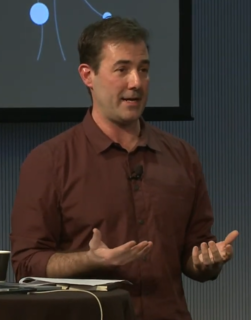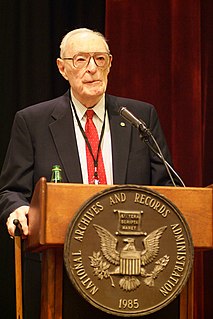Top 258 Relevance Quotes & Sayings - Page 5
Explore popular Relevance quotes.
Last updated on April 14, 2025.
My books have done extremely well, I know. But I don't honestly feel much different from when I began to write. I still think we have a long way to go. I suppose my name means more in Nigeria today than it did five years ago. But I feel the job that literature should do in our community has not even started. It's not yet part of the life of the nation. We are still at the beginning. It's a big beginning, because now we are catching the next generation in the schools. When I was their age, I had nothing to read that had any relevance to my own environment.
I would say that introverts make some of the best international philosophers. The less common attribute of the introverted lifestyle - a close societal connection, as such a connection disappears or changes in relevance as the currents of the winds change - leaves too much room for one's own cultural bias. Instead, introverts tend to turn inward, the laboratory of being and all its forms. This is the most accurate study of the individual human being, which is in turn, rather than those affected by cultural limitations, the most universal reflection of human understanding and human behavior.
... whatever men do or know or experience can make sense only to the extent that it can be spoken about. There may be truths beyond speech, and they may be of great relevance to man in the singular, that is, to man in so far as he is not a political being, whatever else he may be. Men in the plural, that is, men in so far as they live and move and act in this world, can experience meaningfulness only because they can talk with and make sense to each other and to themselves.
'Believing' cannot tip the scales in making a historical judgement about whether something really happened. I can choose to believe that George Washington threw a silver dollar across the Rappahannock, but my believing that he did it has nothing to do with whether or not he really did do it. So also with the story of Jesus walking on water: Believing that he did it has nothing to do with whether he really did do it. 'Belief' cannot be the basis for historical conclusions; it has no direct relevance.
Historically different groups find different things in each comics, as with *X-Men*. Gay readers find parallels to living a closeted lifestyle or choosing to come out and be openly gay. Black readers find a relevance to their lives growing up in America as a black guy. Picked-on brainy kids find a metaphor for being an outsider. It's a simple enough, and direct enough metaphor that it has different shades for different people. And so each reader to some degree gets out of it what they bring to it. That's one of the things I think that makes *X-Men* such a strong property.
The Saint whose water can light lamps, the clairvoyant whose lapse in recall is the breath of God, the true paranoid for whom all is organized in spheres joyful or threatening about the central pulse of himself, the dreamer whose puns probe ancient fetid shafts and tunnels of truth all act in the same special relevance to the word, or whatever it is the word is there, buffering, to protect us from. The act of metaphor than was a thrust at truth and a lie, depending where you were: inside, safe or outside, lost.
Why be saddled with this thing called life expectancy? Of what relevance to an individual is such a statistic? Am I to concern myself with an allotment of days I never had and was never promised? Must I check off each day of my life as if I am subtracting from this imaginary hoard? No, on the contrary, I will add each day of my life to my treasure of days lived. And with each day, my treasure will grow, not diminish.
Every time a crime was committed by a Muslim, that person's faith was mentioned, regardless of its relevance. When a crime is committed by a Christian, do they mention his religion? ... When a crime is committed by a black man, it's mentioned in the first breath: 'An African American man was arrested today...' But what about German Americans? Anglo Americans? A white man robs a convenience store and do we hear he's of Scottish descent? In no other instance is the ancestry mentioned.
Elizabeth Taylor is pre-feminist woman. This is the source of her continuing greatness and relevance. She wields the sexual power that feminism cannot explain and has tried to destroy. Through stars like Taylor, we sense the world-disordering impact of legendary women like Delilah, Salome, and Helen of Troy. Feminism has tried to dismiss the femme fatale as a misogynist libel, a hoary clich?. But the femme fatale expresses women's ancient and eternal control of the sexual realm. The specter of the femme fatale stalks all men's relations with women.
These algorithms, which I'll call public relevance algorithms, are-by the very same mathematical procedures-producing and certifying knowledge. The algorithmic assessment of information, then, represents a particular knowledge logic, one built on specific presumptions about what knowledge is and how one should identify its most relevant components. That we are now turning to algorithms to identify what we need to know is as momentous as having relied on credentialed experts, the scientific method, common sense, or the word of God.
Naturalism is the view that the physical world is a self-contained system that works by blind, unbroken natural laws. Naturalism doesn't come right out and say there's nothing beyond nature. Rather, it says that nothing beyond nature could have any conceivable relevance to what happens in nature. Naturalism's answer to theism is not atheism but benign neglect. People are welcome to believe in God, though not a God who makes a difference in the natural order.
Typically, defenders of experiments on animals do not deny that animals suffer. They cannot deny the animals' suffering, because they need to stress the similarities between humans and other animals in order to claim that their experiments may have some relevance for human purposes. The experimenter who forces rats to choose between starvation and electric shock to see if they develop ulcers (which they do) does so because the rat has a nervous system very similar to a human being's, and presumably feels an electric shock in a similar way.
So much is wrapped up in our work and each book of the Bible points to Christ and the good news of what he's done that impacts the whole of our lives and the whole of our world. When our eyes are opened to see how each book of the Bible points us to the gospel, the relevance to our work and the need for this good news to enter into our work becomes increasingly evident.
Gods, religions and national boundaries are absolutely imaginary. They don't tend to exist. As soon as you pull back half a mile and look down at the Earth there are no national boundaries. There aren't even national boundaries when you get down and walk around. They're just imaginary lines we draw on maps. I just get fascinated by people who assume that things that are imaginary have no relevance to their lives.
"Biblical theology" refers to something more precise than theology that is faithful to the Bible. It might be helpful to draw a contrast: at the risk of oversimplification, systematic theology tends to organize theology topically and with an eye cast on its contemporary relevance, while biblical theology tends to organize the same biblical material so that it is easier to see the distinctive contribution of each biblical book and human author, and to trace the trajectories of themes across the Bible so we see how the books of the Bible hold together.
Leaders are problem solvers by talent and temperament, and by choice. For them, the new information environment-undermining old means of control, opening up old closets of secrecy, reducing the relevance of ownership, early arrival, and location-should seem less a litany of problems than an agenda for action. Reaching for a way to describe the entrepreneurial energy of his fabled editor Harold Ross, James Thurber said" 'He was always leaning forward, pushing something invisible ahead of him.' That's the appropriate posture for a knowledge executive.
Some people are ignorant of the world but educated in Scripture, and are therefore prone to missing the relevance of Scripture - these sometimes, later, amidst life's challenges and doubts, turn from the faith; other people are ignorant of Scripture but educated in the world, and are therefore prone to missing the truth of Scripture - they are often those who ridicule the faith. The apologist stands somewhere in the center. He articulates where some are prone to understanding the truth in beauty, others the beauty in truth - that of a spiritual Creator in relation to his scientific creation.
There are only shades of gray. Black and white are nothing more than lofty ideals in our minds, the standards by which we try to judge things, and map out our place in the world in relevance to them. Good and evil, in their purest form, are as intangible and forever beyond our ability to hold in our hand as any Fae illusion. We can only aim at them, aspire to them, and hope not to get so lost in the shadows that we can no longer aim for the light.
















